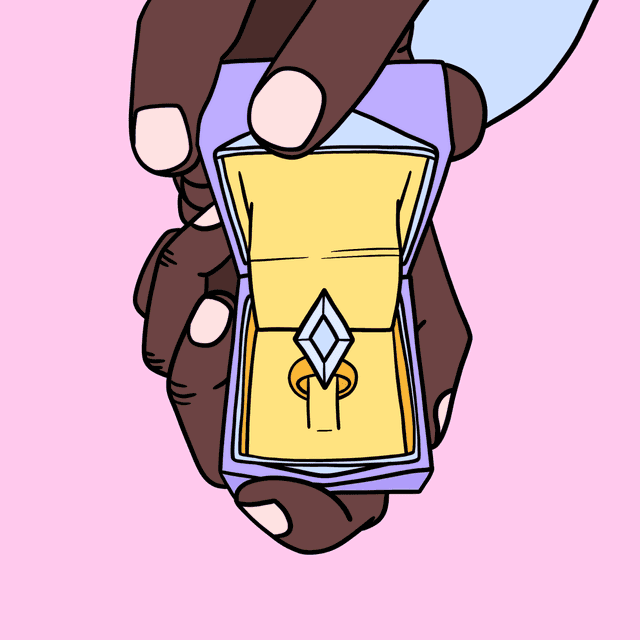How to Agree in German (10+ Ways)
How do you say Yes in German? The simple answer is: ja. But there are so many other ways to agree with someone, beyond that simple, two letter word. Let's explore some of these ways, in this article!

Your sister comes to visit you. You haven’t seen her in a year, and have been looking forward to this holiday together for months.
You’ve prepared a feast, and made sure there were more than enough snacks in the pantry. She asks if she can help herself to some popcorn (and she asks you in German, because she's read this guide on how to ask questions in German).
How would you respond, in German? Would you simply say “Ja.”? Perhaps you would… but perhaps you would want to say something that better expresses your excitement and enthusiasm, something like: “Ja, sicher!” or “Natürlich!”.
In this article, we will explore different and nuanced ways to say “Yes” in German!
👍👍👍
Saying Yes in German
Natürlich! Sicher! Na Klar! Nur zu! Kein Problem!
Let’s start off with some German words that would fit the scenario in the article's introduction.
In many situations, you may wish to express enthusiasm and excitement in saying “Yes” to somebody, such as when you joyously accept a proposal 💍, or accept an invitation to a wedding 💒.
Alternatively, you may want to express assurance in saying “Yes”, such as when someone asks if you’ll still accompany them to the doctor, or if you’re sure you want to go ahead with the nose piercing.
In these situations, you may use the words: “Natürlich”, “Sicher”, “Na Klar”, “Nur zu” and “Kein Problem”.
Examples
Sandra, natürlichof course kannst du mein Auto ausleihento borrow! Brauchst du es nur für das Wochenendeweekend, oder bleiben deine Eltern länger?
Darfmay ich das letzte Stückpiece Kuchen haben? - Ja, sicher! Nur zugo ahead, Ahmed, es ist alles deins!
Bist du sicherare you sure, dass es dir nichts ausmacht, später vorbeizukommen und etwas Zeit mit mir zu verbringen? - Na Klarof course! Ich möchte alles tun, was ich kann, um dich zu unterstützen.
Jules, würdest du mir bitte helfen, diesen Text zu übersetzento translate? - Kein problemno problem! Welcher Teil ist für dich schwierigdifficult?
Eben! Genau! Total! Richtig! Das sehe ich auch!
When you meet somebody who just “gets you”; who seems to truly understand what you’re trying to say, it can be a pretty special experience. In such a context, you may describe a feeling or situation, to have that friend confirm they understand just what you mean with a similar description of their own. Feeling truly heard, you may respond with something like “Exactly!
That’s exactly what I’m talking about!”. Well, in German, you may say something like “Genau!”, “Eben!”, “Total!”, “Richtig!” or “Das sehe ich auch” to mean the same thing.
These words and phrases are used to express a feeling of ‘seeing eye to eye’ with someone; of concurring or being in full agreement.
Examples
Als du sagtest, dass du nachts Geisterghosts siehst, wäre ich fast in Ohnmacht gefallento faint, denn ich sehe sie auch. Sind sie klein und haben rote Augen? - Ganz genauexactly! Ich kann nicht glauben, dass du sie auch siehst!
Also, Nour hat uns die ganze Zeitthe whole time angelogen? - Richtigthat's right! Ich wusste, dass wir ihr nicht trauen können.
Am besten wäre es, Schlagsahnewhipped cream für die heiße Schokolade zu machen, oder? - Ja, total!yes, totally Ich liebe Schlagsahne.
Manchmalsometimes stelle ich fest, dass James seine Wut nur schwer kontrollieren kann. Er ist zu ungeduldig.impatient - Das sehe ich auch, ganz klar.clearly
Du magst die Kurse von Mr. Smith sehr, oder? Mir auch, er kann komplexe Probleme gut erklärento explain. - Ja, eben!yes, that's right Das kann er wirklich gut!
Aber Hallo! Was denn sonst? Selbstverständlich!
Your best friend, who you have known since you were a child; who stuck by you through thick and thin; who is your favourite person, has just asked you to be her maid of honour / best man.
Would you do her this favour? Aber Hallo! When we’d like to express our full agreement with the enthusiastic suggestion that the answer is obviously a yes, we may use the expressions “Aber Hallo!”, “Was denn sonst?” and “Selbstverständlich”.
Alternatively, these expressions may also be used to agree in a more negative, sarcastic way, depending on the tone and context (“Holst du mich später ab?” - “Was denn sonst?”).
Examples
Nach zehn Jahren des Missbrauchsabuse war es die beste Idee, die ich je hatte, mich von ihm scheiden zu lassento divorce. – Aberabsolutely hallo! Ich bin so stolz auf dich, dass du es endlich geschafft hast.
Würden Sie sich dieses Wochenendeweekend um meine Pflanzenplants kümmern, während ich auf einer Geschäftsreisebusiness trip bin? - Nachdem du mir diesen Gefallen schon so oft getan hast, was denn sonstwhat should I say / what else? Natürlich mache ich das gerne!
Ich hatte ein finanziell schwierigesfinancially difficult Jahr, bedingt durch die Corona-Pandemie. Wäre es okay, wenn wir dieses Jahr zu WeihnachtenChristmas keine Geschenkegifts austauschen würden? - Ja, selbstverständlichyes, of course! Ich bin einfach froh, dass wir in den Ferienduring the holidays Zeit miteinander verbringen können.
Warum nicht. Okay. Passt. In Ordnung.
Although these expressions, spoken with enthusiasm, can certainly come across as cheerful, commonly they are used to communicate a more subdued, less than excited version of a ‘yes’. Perhaps more of a “Meh, alright”, or a “Hm.. I guess so”, rather than an “Of course!”.
For example, when your son tidies his bedroom, only doing the bare minimum, and asks you if it looks alright, you may say “Ja, Passt.”, rather than “Ja, total!”.
Or, if you reluctantly allow your child yet another chocolate, you may do so by saying “Okay, aber nur noch eine”, rather than “Natürlich!”.
Examples
Möchtest duwould you mir und deinem Vater helfen, heute Abend Knödel zu kochento cook? - Hmmm... warum nichtwhy not. Ich habe heute sowiesoanyway nichts Besseres zu tun.
Werden Sie bei der nächsten Party daran denken, die Lautstärkevolume zu drosselnto turn down? -Ja, okayyes, okay.
Ist mein Deutsch schon gut genuggood enough, um auf Deutsch zu studierento study? - Nun, hmm, es passtit's alright. Ich würde aber an deiner Stelleif I were you weiter übento practice. Ich bin mir sicher, dass du mit ein paar Monaten Übung total bereit sein wirst!
Reicht ein Bachelor-Abschluss in Naturwissenschaftennatural sciences aus, um mich für diese Stelle zu bewerbento apply? - Das wäre in Ordnungacceptable. Wir würden jedochhowever jemanden mit einem Master-Abschluss vorziehen.
Einverstanden. Abgemacht.
When your superior at the Boot Camp you are attending tells you to make sure you are awake and ready to go at the break of dawn, you may nod your head in earnest, and say “Einverstanden”.
In a context where a certain level of respect or seriousness is expected of you, whilst you assure your parents, your boss, your partner etc. that you have heard, understood and agreed to something, “Einverstanden” and “Abgemacht” prove particularly useful.
Examples
Susan, bitte sorgen Sie dafürto make sure, dass die Präsentation über den letztjährigen Kongress bis morgen Abend fertig ist, bevor Sie das Bürooffice verlassento leave . -Abgemachtdone. Brauchen Sie noch etwas für das Treffenmeeting?
Timmy, räume bitte dein Zimmerroom auf und zieh dir frische Sachen für Opas Besuchvisit an. Und ich will nicht sehen, dass du mit dem Gameboy spielstto play, während er hier ist, okay? - Einverstandengot it, Papa.
Agreeing in German (in Discussions)
Whilst any of the expressions listed above may, of course, be used during a discussion or debate between friends, we thought it may also be helpful to provide some more phrases that you may use to agree with someone, and in doing so, clearly express your position.
Ich stimme dir zu! / Da kann ich nur zustimmen!
Ich finde die Atmosphäreatmosphere im Gemeinschaftsraumcommon room unerträglichunbearable. Ich weiß nicht, wie man dort lernen kann, es ist so laut! - Ich stimme Ihnen völlig zuI totally agree with you. Es ist, als ob jemand rund um die Uhrall day and night eine Party veranstaltet.
Das ist wahr / Das ist wirklich wahr
Ich kann Rosie nichts von der heimlichen Verlobungsecret engagement erzählen, weil sie kein Geheimnissecret bewahren kann und es am Ende Cynthia erzählen wird! - Das ist wirklich wahrthat is so true. Okay, dann sagen wir es ihr eben nicht.
Du hast recht / Da hast du Recht
Ich sollte aber nicht für ein Verbrechencrime bestraftto be punished werden, das mein Freund begangento commit hat. Ich war nur ein Zeugewitness. - Da haben Sie recht. Sie werden nicht bestraft werden.
Ich bin ganz deiner Meinung
Für mich ging es in dem Film überhauptat all nicht um das Leben im Wilden Westen, sondernbut rather um eine Analyse der toxischen Männlichkeittoxic masculinity durch die Erkundungexploration der drei Hauptfigurenmain characters. - Ich bin ganz Ihrer MeinungI am totally of the same opinion. Vor allemespecially, weil sich der Film so sehr auf die Beziehungenrelationships der drei Männer im Haus konzentriert.
Da ist etwas Wahres dran
Ich schwöre, dass Ben eine Obsession für Krokodile hat! - Da ist etwas Wahres dranThere's some truth to that. Ich bin mir nicht sicher, ob ich es als Obsession bezeichnento call / term würde, aber er zeigt wirklich großes Interesse an ihnen.
Daran besteht kein Zweifel
Eines ist jedoch sicher. Danni ist verrückt nachto be crazy about Ben. - Daran gibt es keinen ZweifelThere's no doubt about it. Sie ist Hals über Kopfhead over heels in ihn verliebt.
Ich bin ganz bei dir / Ich bin hundert Prozent bei dir
Morgentomorrow gehe ich direkt ins Büro des Schulleitersthe headmaster's office und erzähle ihm alles über Thomas' Verhaltenbehaviour! Das kann er Jess nicht antun und einfach so davonkommento get away! - Ich bin ganz bei dir, Faris.
Ich denke, ja / Ich denke, doch / Ich denke schon
Flo wird erst nächste Wochenext week wieder in der Stadt sein, stimmt's Phil? - Ja, ich denke schonyes, I think so.
That's it. Now you can travel to Germany and say yes to everyone 😅.




